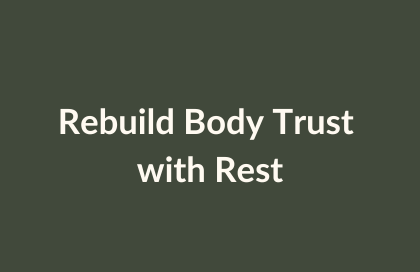Today, I give you Issue No. 4 of The Creative Goods, a feminist and justice-based advice column for creators with conundrums, written by me, Jill Margo, in which I respond to “Mrs. I’m Trying to Enjoy My Life” about not replicating the bad habits from her work-work life in her creative life. Once again, there are reflection prompts at the end for readers who’d like to dive deeper into the topic for themselves.
First, there’s a short shout out about my two upcoming offerings. The intake officially begins on Monday, June 5th, but you, my lovely subscribers, get a head start and may reserve a seat for The Seasonal Creator Summer Workshop and/or apply for the Summer Follow-through Sessions now!
Thanks for being here. And please do leave a comment! As always, I’d love to hear your thoughts on this topic.
The Seasonal Creator Summer Workshop
Attuning Your Creative Practice to the Energies of the Season
Learn to work with the energy of the season in a way that honours your own fluctuating energy levels so that you can pace yourself throughout the year.
Held on Zoom
Tuesday, June 20th
3:30pm to 5pm PT or 6:30pm to 8pm PT
All workshops are pay-what-you wish, $0 to $30 CAD suggested
Summer Follow-through Sessions
A Whole Season of Accountability, Encouragement, and In-it-togetherness
Do the creative work that matters most to you with the support of like-hearted peers (because even though we might make work alone, it doesn’t mean we have to be alone).
Held on Zoom
Every second Monday, beginning July 3rd, ending September 25th
3:30pm to 5:30pm PT or 6:30pm to 8:30pm PT
$465 CAD
Dear Jill,
I'm currently on a sabbatical period. My job, in the social impact space, was amazing but extremely demanding. I felt burnout for years but always pushed myself a little bit harder. Now I'm reconnecting with my creativity, especially my writing. I have found myself staying awake until late or working very early in the mornings. When I write I enter in a state of flow where time just happens in a different way. Of course, I don't want to replicate the bad habits of my professional self now in my creative space. How do I pursue my passions in a regenerative way whilst still honoring a living pace that heals instead of hurts?
Signed,
Mrs. I’m Trying to Enjoy My Life
Dear Mrs. I’m Trying to Enjoy My Life,
I’m so glad that you’re on a sabbatical reconnecting to your creativity, and that you don’t want to replicate the bad habits from your professional life in your creative life. As they say, recognition is half the battle.
Since you mentioned it, I want to touch on burnout first. Job burnout is a symptom of chronic workplace stress and exploitation. Exploitation happens on a spectrum. On the extreme end there may be dangerous and discriminatory labour practices that are often illegal. However, there is also the all too common and overlooked end, which is often more subtle and can include going the extra mile and not getting any recognition, having to do a colleague’s work on top of your own, an ever-increasing workload with no compensation, and time off being infringed upon by always being “on call”. I’m not sure what level of exploitation led to your burnout, but the point I want to make is that the experience has trained your body not to trust you to take care of it, which is what happens when we push ourselves. That means that a crucial part of your recovery is to rebuild body trust. Which brings us to your question.
Writing won’t burn you out, but the way you’re writing might. You mentioned being in flow, which is wonderful to be able to access. Positive psychologist Mihály Csíkszentmihályi who coined the term “flow state” (a.k.a. “being in the zone”) describes it as a state of complete immersion in an activity. He says, “The ego falls away. Time flies. Every action, movement, and thought follows inevitably from the previous one, like playing jazz. Your whole being is involved, and you’re using your skills to the utmost.”
Reading in-between-the-lines of your letter though—because after you mention flow you immediately go on to mention “bad habits”—I’m guessing that you already know that there’s a dark side to flow states. Flow states come with addictive neurochemistry and when we stay in flow for too long, we lose our ability to self-regulate. Our bodies then pay the price because we aren’t sleeping/eating/hydrating/resting as we are meant to. We may also feel disconnected, disoriented, or depressed when we come out of long flow states. So, there’s a cautionary tale here too.
I’ve learned a bit about flow states from Ixchel Lunar, who describes herself as a “decolonial time mender”. She says that because of the role dopamine (a neurochemical connected to action) plays in flow, we can find ourselves in “boom and bust cycles” in which we burn out all our dopamine and then crash (something neurodiverse folks who hyper-focus are particularly vulnerable to). This is another thing that teaches our bodies not to trust us. We may then procrastinate on getting back to our work because the body subconsciously knows it’s going to be driven to crash again and is resisting that.
The solution here—again, something I learned from Ixchel Lunar—is to not allow yourself to stay in a flow state for more than 90 minutes (120 minutes maximum) before you take a break. That means setting a timer and then when it goes off, initiating an intentional and active recovery phase that helps you access serotonin and oxytocin. This means things like tending to your body’s needs, connecting with nature or loved ones (including animals), mindfulness practices, doing nothing, reading, puttering in a gentle way, and so on. It does not include looking at screens or anything remotely stressful.
I want to stress that the recovery phase must be intentional and active and viewed as something that completes the flow cycle. So, if I want to do a writing flow session, I earmark two hours and after 90 minutes I complete the cycle with 30 minutes of restful actions that work for me (15 minutes is the minimum, but half an hour works better for me). Right now, I like to pop out to the garden, have a drink, hug my fella, and do a short, guided meditation with breathwork. I may then repeat the flow cycle, which is totally fine as long as that recovery phase is built in. Another thing: all 120 minutes “count” toward my creative practice, not just the 90 minutes in which I was in flow. (Imagine if the work-work world worked this way!)
What I’m suggesting does take some discipline (I’m still working on that myself). When the creativity is flowing, I know it’s hard to step away. It’s especially hard if you’re used to time and/or energy scarcity. For example, for me, chronic illness means I often have low energy so when I do have energy my temptation is to USE IT ALL before I lose it, but when I do that, it sets me even further back. Folks who don’t have a lot of time and have a lot of commitments may find themselves using flow in revenge, but then also sacrificing sleep.
If you have trouble stepping away, it’s good to be clear in your mind about why it’s for the best. Here are the points I remind myself of:
Working within my capacity expands my capacity (h/t Ixchel Lunar, once again).
Rest is a form of resistance. It pushes back against capitalism and white supremacy (h/t Tricia Hersey).
I am teaching my body to trust me, therefore cultivating a more just relationship with myself (and the more just relationship I have with myself, the more justice work I can do in the world).
If you still find stepping away challenging, you may need to enlist the help of someone else who can pull you out of flow when your timer goes off (this is why co-working is great).
Another thing worth mentioning is that I don’t want us to think of flow in the way that capitalism has co-opted it: it is not about productivity and optimizing ourselves. Rather, it’s a way to be in deep relationship with the work we are most passionate about.
Thank you for writing to me. I hope this gives you a way forward that feels nourishing and sensible and allows you to enjoy your life. When we allow rest to be part of our process, I truly believe we can be happier and more liberated.
Good things,
Jill
REFLECTION PROMPTS
Want to dig deeper into this issue’s topic in terms of your own creative practice? Make yourself a cuppa and grab a notebook and pen…
What bad habits from your work-work life have found their way into your creative-work life?
What has been your experience with flow states?
What is your relationship to rest like?
What might an intentional and active recovery phase that helps you access serotonin and oxytocin look like for you?




Excellent points Jill, and very well worded. Also timely for me, as I, too, struggle with transferring my work-work habits to my creative-work world. I am looking at my relationship with my (perimeno-changing) body right now, hoping to create a better foundation of trust and appreciation. There's a lot going on! PS: I will take every opportunity I can to take a wee break and give my fur baby a cuddle! :)
Thank you for these words! Resting is loving ourselves and a way to tend to our creative practice <3